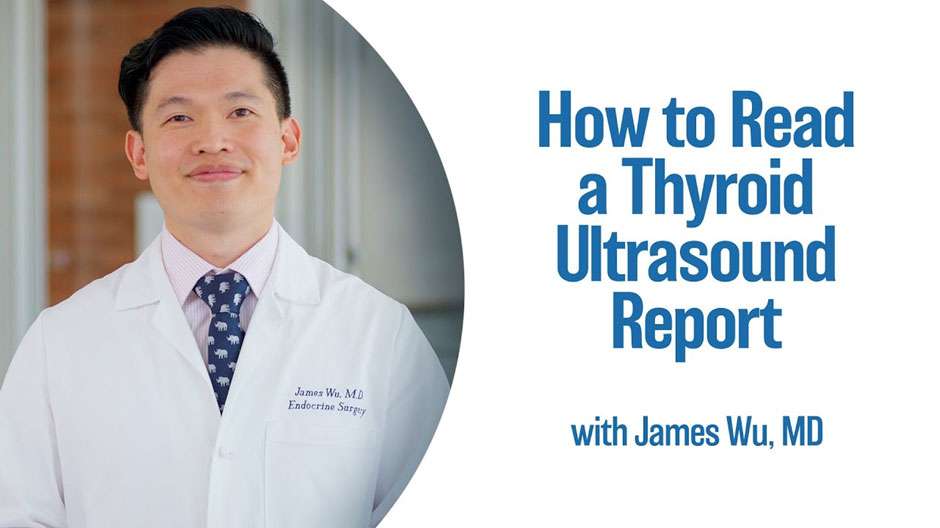Thyroid Ultrasound
Find your care
We deliver effective, minimally invasive treatments in a caring environment. Call to connect with an expert in endocrine surgery.
What is a Thyroid Ultrasound?
The thyroid is a gland located in the neck that regulates metabolism. Ultrasound is a painless method of examining structures inside the body. This test involves high-frequency sound waves that are emitted and received by a transducer (a handheld instrument). These sound waves penetrate the body and are arranged into an image seen on a screen based on the way they bounce off of the various body structures. Alternative Names: Ultrasound - thyroid; Thyroid sonogram; Thyroid echogram

Thyroid Neck Ultrasound

Ultrasounds are done at the Center for Endocrine Surgery by your endocrinologist or endocrine surgeon, not a technician. Ultrasounds use sound waves, without any type of radiation. Ultrasounds are the best way to look at the thyroid, all present nodules, and the lymph nodes in the neck. They provide the most detail, often better than CT, MRI, or other types of scans.
Thyroid Nodules
Not all thyroid nodules need a biopsy. For many thyroid nodules we see in our office, we choose not to biopsy because the ultrasound appearance is so reassuring. That is one way to avoid over treatment. For example, nodules that appear completely black on the inside (“anechoic”) are purely cystic, or filled with fluid. The chance of thyroid cancer for a cystic nodule is essentially zero and cystic nodules do not require biopsy. There are guidelines from the American Thyroid Association that will help your doctor determine which nodules to biopsy based on their size and how suspicious they look on the ultrasound.
There are certain factors that make a nodule suspicious for thyroid cancer. For example, nodules that do not have smooth borders or have little bright white spots (micro-calcifications) on the ultrasound would make your doctor suspicious that there is a thyroid cancer present. If the nodule appears suspicious on ultrasound and is larger than 1cm, the next step is to do a thyroid biopsy.
Our cytopathologists evaluate over 1000 samples per year, so we are confident in the accuracy of our biopsies. When biopsy does not give a clear answer, we automatically use molecular profiling to refine the diagnosis.
What Does the Thyroid Gland Do?
Find your care
We deliver effective, minimally invasive treatments in a caring environment.
Call to connect with an expert in endocrine surgery.